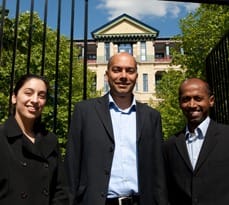Jugaad Innovation, a book that advocates a frugal, flexible and inclusive approach to growth, co-authored by Professor Jaideep Prabhu of Cambridge Judge Business School, has been described by The Economist as “the most comprehensive book yet to appear on the subject”.
Along with his co-authors Navi Radjou and Simone Ahuja, Professor Prabhu looks at how ‘jugaad’ – a Hindi word meaning an improvised solution born from ingenuity and using scarce resources – is leading to growth in emerging markets, and how Western companies can adopt this approach to succeed in a hypercompetitive world.
The book was published by Jossey-Bass in the US and UK in March/April and by Random House in India in June. Having been at the top of the non-fiction bestseller list in India for several weeks in July and August, it is already into its second edition there, with a new foreword by the Chairman of the Tata Group, Mr Ratan Tata. A Portuguese edition for the Brazilian market is due out in September.
The book has received a host of positive reviews from a number of leading publications and companies around the world:
By jugaad, the authors have in mind a matrix of ground-level product and service introductions, often micro in nature but scalable, to solve massive challenges with basic, 'good enough' solutions."
…it's most eloquent rebuttal is to be found in Jugaad Innovation, an overview from a trio of academics at Cambridge University's Judge Business School. Along with the related idea of 'frugal' innovation (which puts more emphasis on ideas that are cheap, rather than thrown together), the authors provide a wealth of examples of entrepreneurs who have found success by doing more with less.
Have you ever wished, when reading a thought-provoking book that you could invite the author to lunch and simply talk about his or her ideas and inspiration? In their book … Radjou, Ahuja and Prabhu did an admirable job of naming and contextualizing the idea of improvised innovation.
In essence, this is an interesting book for leaders that want to think differently about how they approach business, and not spend unnecessary money and energy doing so.
This energetic book – part manifesto, part guide – makes a strong case for why innovation alone is no longer sufficient for businesses to success in a highly-competitive global landscape.
By formalizing the 'jugaad' approach to solving problems speedily and frugally, the authors have conceptualised a platform on which future innovation can develop.
Jugaad Innovation is a must-read for all MNC executives who have a long-term vision to be successful in India … If one succeeds in emerging markets, such as India, you can be successful anywhere in the world; and to success in India, you need Jugaad!
This book highlights innovation in rapidly expanding markets like India, where frugality and flexibility are strengths that are being leveraged to drive growth in the 21st century. For transnational corporations and grassroots entrepreneurs, manufacturers and those in the creative sector, understanding how to catalyze success through innovation is crucial. For all of them Jugaad Innovation is a must read.
Jugaad Innovation details and provides illustrative examples on ways to transform existing innovation processes to the more fluid art and disruptive culture of jugaad. You'll finish the book with a sense of urgency and a roadmap to go after the organic ingenuity lying within your employees, suppliers and customers, and prepared to tackle the economics of scarcity.
Speaking about the book, Professor Prabhu commented: “I’ve been blown away by the reception the book has received from around the world; from academics and policy-makers to corporate leaders and the general public alike. The press coverage has been impressive with many leading newspapers, weeklies and news programmes covering it in a fair amount of detail. Think tanks, government agencies and companies have invited me and my co-authors to speak to their members and employees about our ideas. And lay people have even set up web-based campaigns devoted to making jugaad part of the UK and Dutch economies by 2015! This is frankly a great deal more than we had ever expected from the book when we set out to write it. I am absolutely delighted!”


